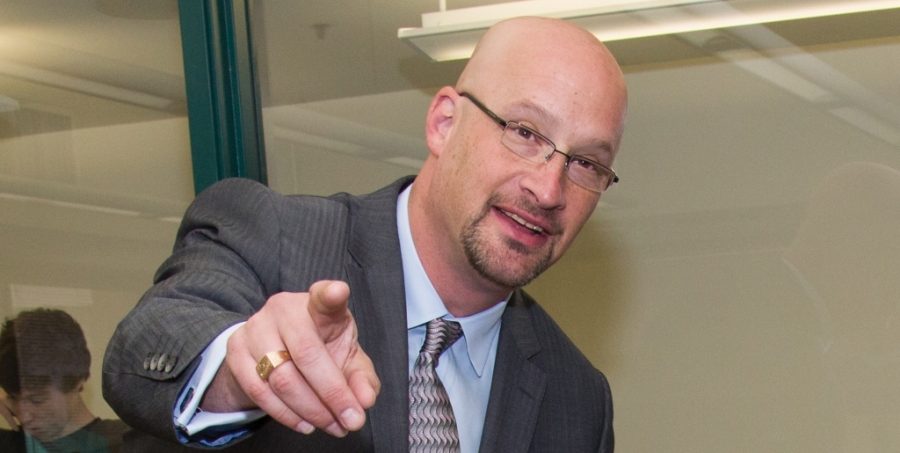Jared Hasen-Klein
Webmaster
On May 11, 2018, Head of School Gary Weisserman and Chair of the Board Richard Sandler wrote letters to the community announcing Weisserman’s departure as Head of School. This news comes less than three weeks after news of President Metuka Benjamin’s departure. Weisserman took over as Head of School at Milken starting in the 2013-2014 school year. He took over for Dr. Rennie Wrubel, an interim (and past) Head of School after a previously unsuccessful search. In a 2014 interview with The Roar, Weisserman commented, “we have the opportunity to be the very best school, and we’re going to take that.”
Weisserman assures that he is “leav[ing] the school in the very finest hands,” and Sandler commits to “assure a smooth transition as Milken continues to provide the highest quality education,” yet the school’s leadership for next year remains uncertain.
The timeline also stands out. Often times, when school administrators are transitioning out of their roles, there is more lead time. For example, deToledo High School is in the midst of their own Head of School transition. In April 2016, dTHS announced the departure of their founding Head of School, Dr. Bruce Powell. Then, in March 2017, they announced that Mr. Mark Shpall would assume the position in July 2018. That is over two years between the announcement of Powell’s departure and Shpall’s start date. Having a long period of transition, should the circumstances allow, is not an uncommon process.
From the content of the emails, the community does not actually know any of the specific circumstances that led to this decision and timing. It is important to note, though, that the Board has been in “ongoing discussions” with Weisserman for the past year, yet a search committee has yet to be formed.
Given that the aforementioned search committee has yet to be formed, it is unlikely that a new opportunity has suddenly been presented to the Board. As for Weisserman, he says he will “pursue some new opportunities which have been presented to me, including some here in Los Angeles.” He also remarked that his eldest son will be graduating next year and that his youngest will be finishing middle school, citing this timing as “just right.”
As an employee leaves a job, his or her Human Resources department will typically conduct an exit interview in an attempt to learn from the employee as they depart. In an attempt to better understand the timing of this transition, and to learn more about Weisserman’s time at Milken and his life moving forward, The Roar sat down with him to ask some typical exit interview questions.
Why are you leaving your current position as Head of School?
A couple of things. I am a firm believer that every five to 10 years it makes sense to 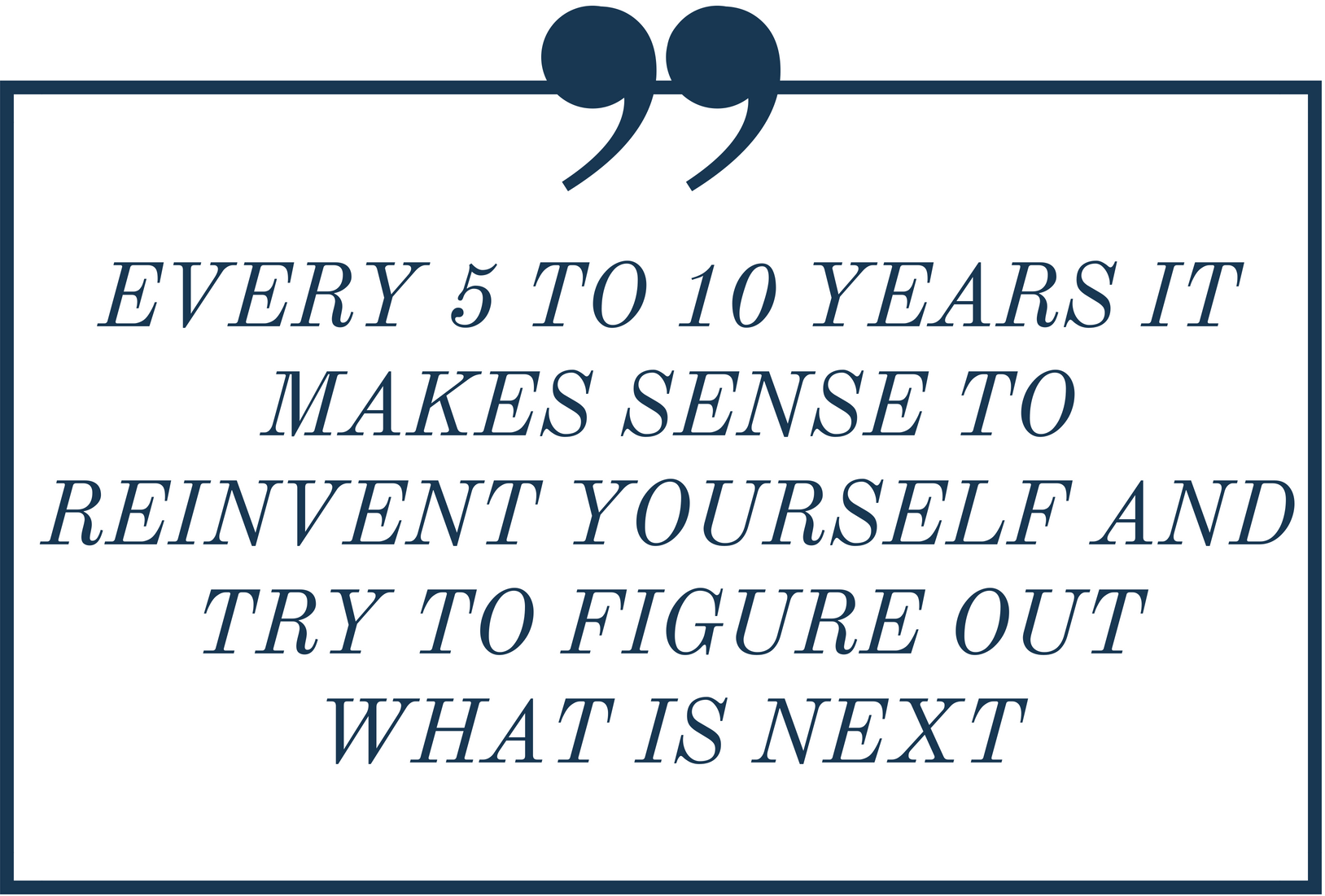 reinvent yourself and try to figure out what is next. This is an amazing, gratifying, fulfilling job – and, it is pretty intense. In the last five years, we have done amazing things… When I got here, even though the school had been around for twenty-something years, it was essentially a brand new school. We were in the process of separating from Stephen Wise Temple, there was no infrastructure in place, and we were going to be an independent school truly for the first time. In the time that we’ve been here, we’ve diversified our student demographic, developed out academic program in ways that I don’t think anybody
reinvent yourself and try to figure out what is next. This is an amazing, gratifying, fulfilling job – and, it is pretty intense. In the last five years, we have done amazing things… When I got here, even though the school had been around for twenty-something years, it was essentially a brand new school. We were in the process of separating from Stephen Wise Temple, there was no infrastructure in place, and we were going to be an independent school truly for the first time. In the time that we’ve been here, we’ve diversified our student demographic, developed out academic program in ways that I don’t think anybody 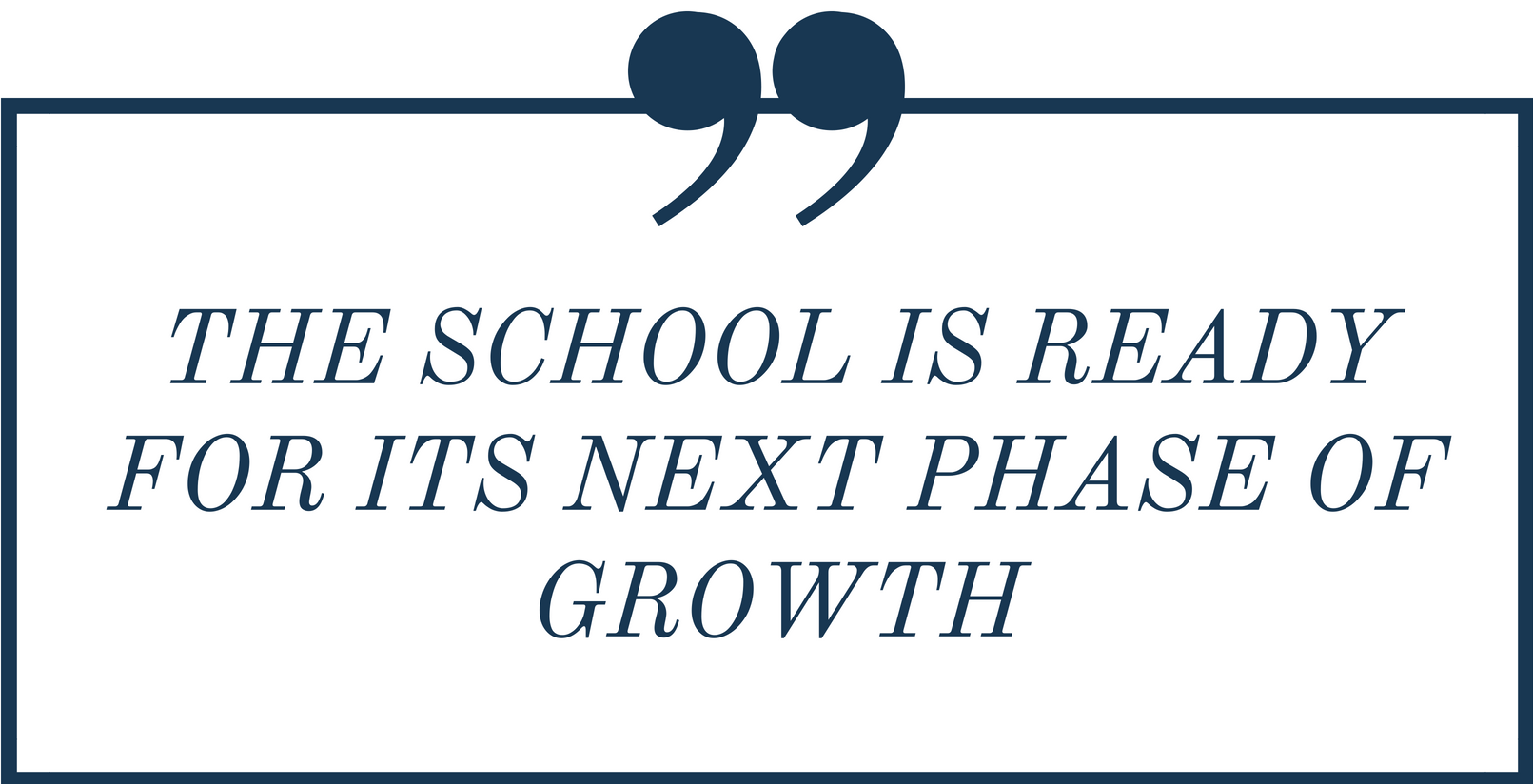 could have imagined. We’ve built new facilities, developed a new culture around teaching and learning, and all of these things happened in a really compressed time span. So, I believe that schools have chapters, they’re like books. And we are going from that sort-of introductory or re-introductory chapter to a place where the school is ready for its next phase of growth. That timed well for me because there are a couple of opportunities that I can’t speak about right now that are very interesting to me for a year from now, and in the meantime, that will give me the opportunity for at least a few months to shavat vayinafash (rest and rejuvenate), which I badly need.
could have imagined. We’ve built new facilities, developed a new culture around teaching and learning, and all of these things happened in a really compressed time span. So, I believe that schools have chapters, they’re like books. And we are going from that sort-of introductory or re-introductory chapter to a place where the school is ready for its next phase of growth. That timed well for me because there are a couple of opportunities that I can’t speak about right now that are very interesting to me for a year from now, and in the meantime, that will give me the opportunity for at least a few months to shavat vayinafash (rest and rejuvenate), which I badly need.
Do you think you were adequately equipped to do your job well?
This is an amazing place, and the most important resource any school has are its human resources. We have a terrific faculty, we have an amazing admin[istrative] team, and we have the “why” – the vision. Those are the most important things you can possibly have. I think everyone would look and say, “Wow. This is a much better school than we had imagined five years ago.”
What was your relationship like with your employees and with the Board?
I have always said that the most important thing that we do as a school, other than 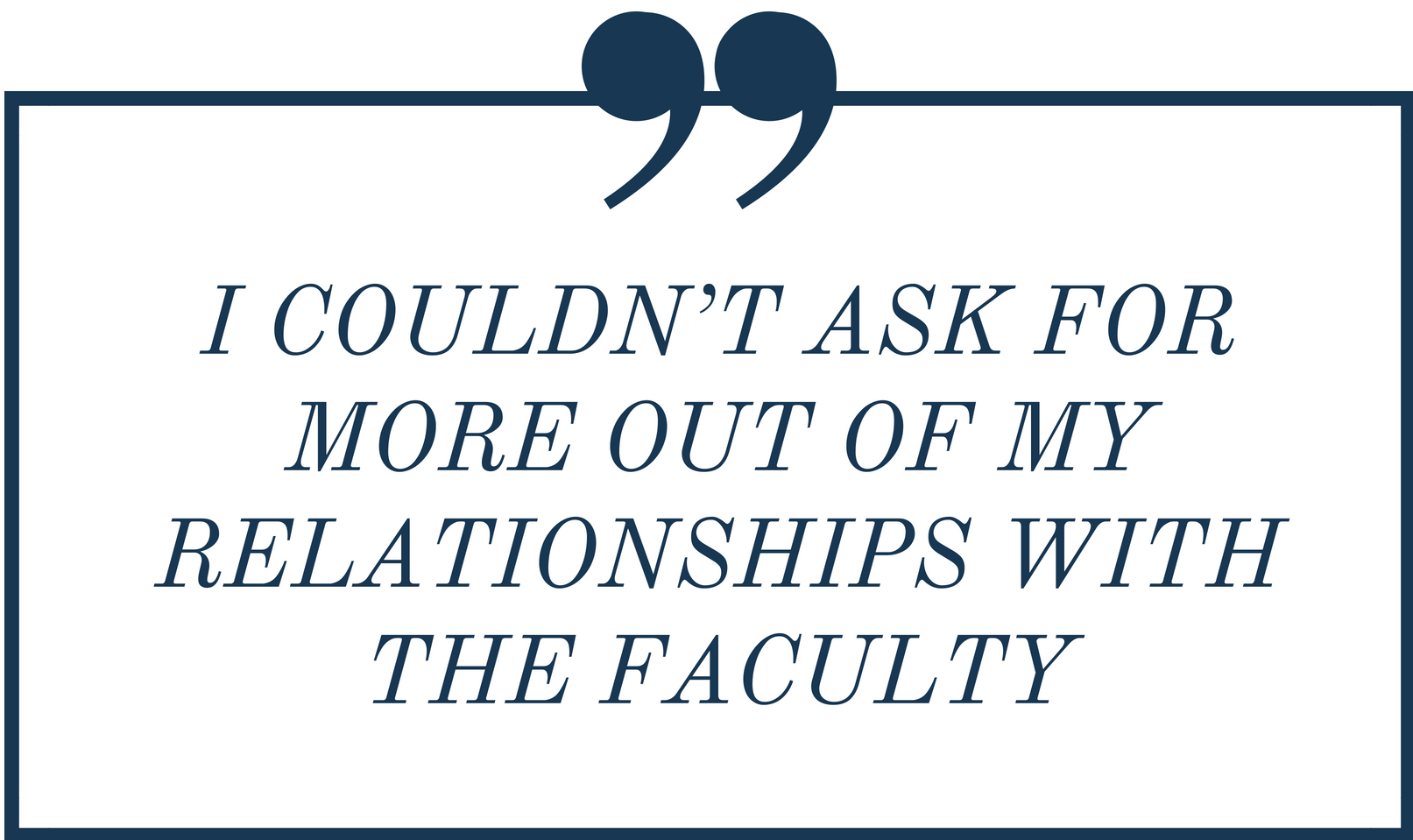 ensuring safety, is providing an amazing faculty. I have been fortunate to have an incredibly engaged professional faculty, with whom my relationship has always been amazing. I value and treasure the relationships I have with the faculty and admin[istrative] team. I have always strived to be very hands on and very visible, I think I’ve done that, which is a department from the traditional Head’s role. And I couldn’t ask for more out of my relationships with the faculty.
ensuring safety, is providing an amazing faculty. I have been fortunate to have an incredibly engaged professional faculty, with whom my relationship has always been amazing. I value and treasure the relationships I have with the faculty and admin[istrative] team. I have always strived to be very hands on and very visible, I think I’ve done that, which is a department from the traditional Head’s role. And I couldn’t ask for more out of my relationships with the faculty.
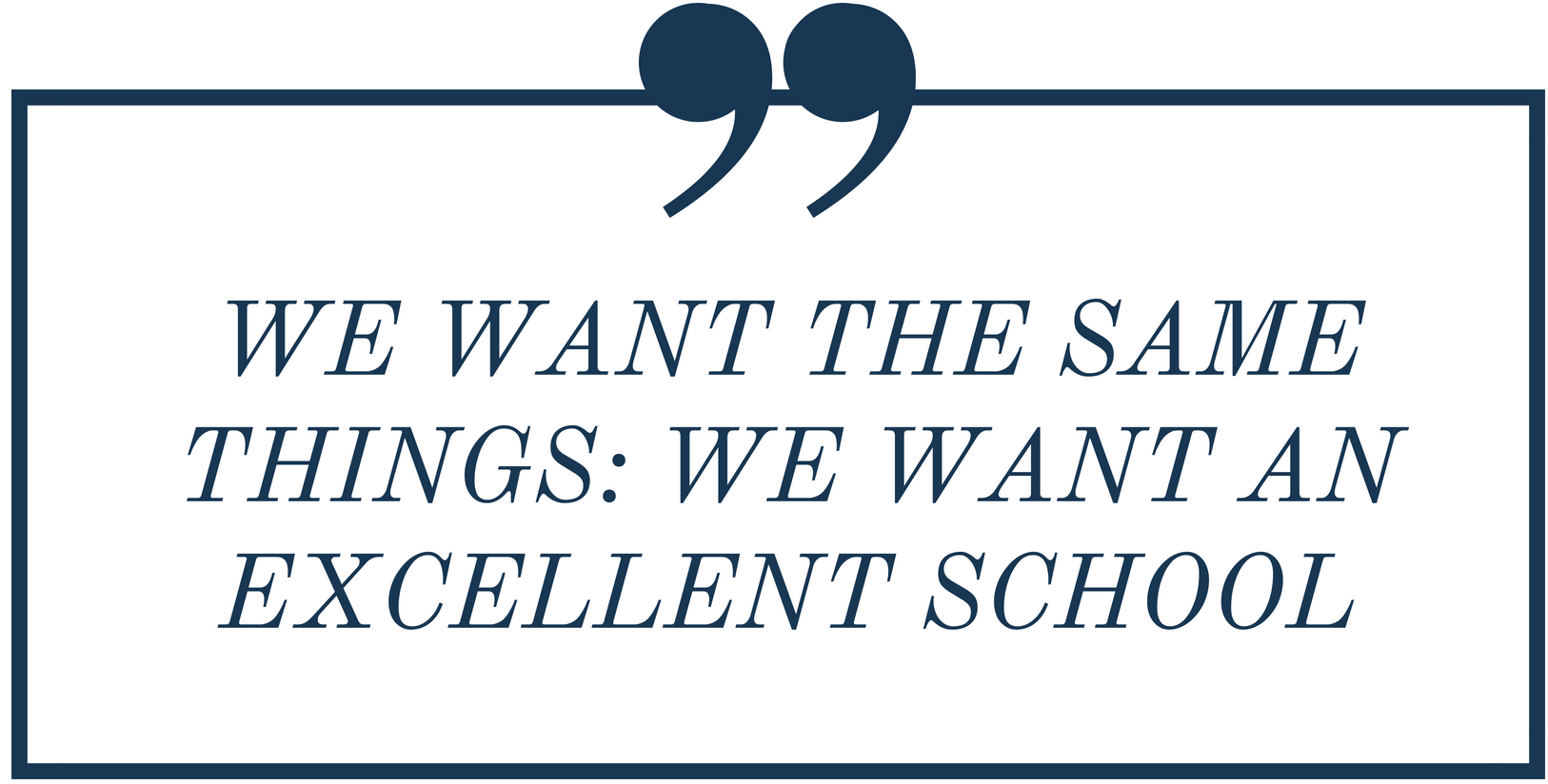 The relationships with the board have been very positive. We want the same things: we want an excellent school. We want a school – and you’ve heard me say it a million times before – we want a school that is not only the best Jewish school, but the best school. And those goals are the same and I’ve enjoyed a very positive relationship with them.
The relationships with the board have been very positive. We want the same things: we want an excellent school. We want a school – and you’ve heard me say it a million times before – we want a school that is not only the best Jewish school, but the best school. And those goals are the same and I’ve enjoyed a very positive relationship with them.
What did you enjoy most about your job?
The people and the vision.
What were your biggest challenges in this role?
Well, I think there have been a few challenges, right? Setting aside things like the fires, all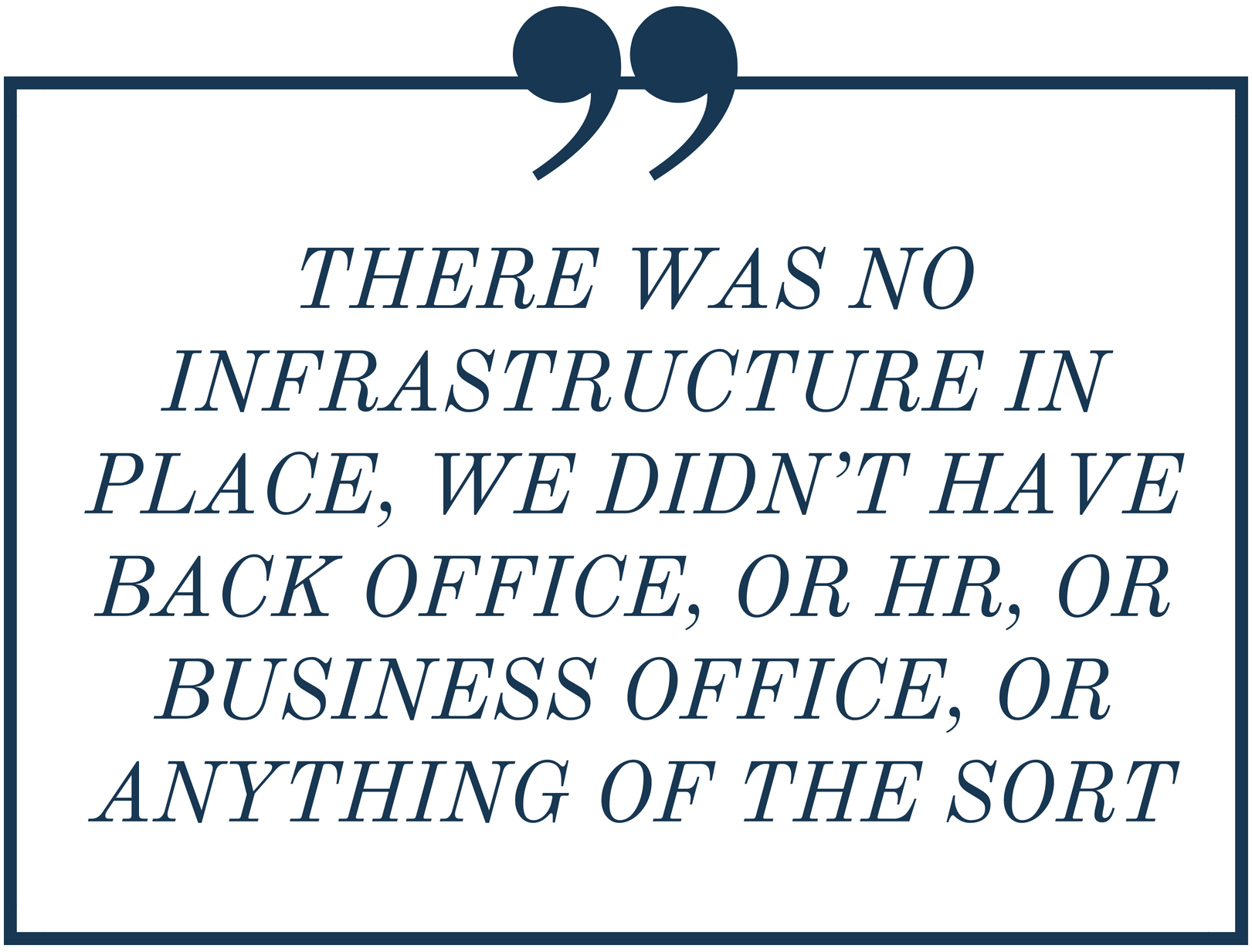 schools are constantly growing and constantly evolving. When we got here, there was a lot of culture that had to be built. There was no infrastructure in place, we didn’t have back office, or HR, or business office, or anything of the sort. We had a changing demographic in that the majority of our students – the vast majority, like 97% – had come from Jewish day schools, elementaries. And they were all shrinking, and many of them continue to shrink. We had to look and say “how is it that we’re going to diversify our market?” and “how is it that we are going to invent ourselves as an independent school with its own philosophy, its own ideology, and its own portrait of the graduate?” We’ve done that. We’ve codified curriculum which hadn’t been done before, we’ve been able to establish support systems and grow support systems like college counseling and guidance that we didn’t have before. We had a huge challenge in the middle school: we had a middle school that really needed to grow and needed to figure out what it did, that it stood for, that was different from any other middle school, and we’ve done that. I think it’s the best middle school in the city, I don’t think it’s even close [competition].
schools are constantly growing and constantly evolving. When we got here, there was a lot of culture that had to be built. There was no infrastructure in place, we didn’t have back office, or HR, or business office, or anything of the sort. We had a changing demographic in that the majority of our students – the vast majority, like 97% – had come from Jewish day schools, elementaries. And they were all shrinking, and many of them continue to shrink. We had to look and say “how is it that we’re going to diversify our market?” and “how is it that we are going to invent ourselves as an independent school with its own philosophy, its own ideology, and its own portrait of the graduate?” We’ve done that. We’ve codified curriculum which hadn’t been done before, we’ve been able to establish support systems and grow support systems like college counseling and guidance that we didn’t have before. We had a huge challenge in the middle school: we had a middle school that really needed to grow and needed to figure out what it did, that it stood for, that was different from any other middle school, and we’ve done that. I think it’s the best middle school in the city, I don’t think it’s even close [competition]. 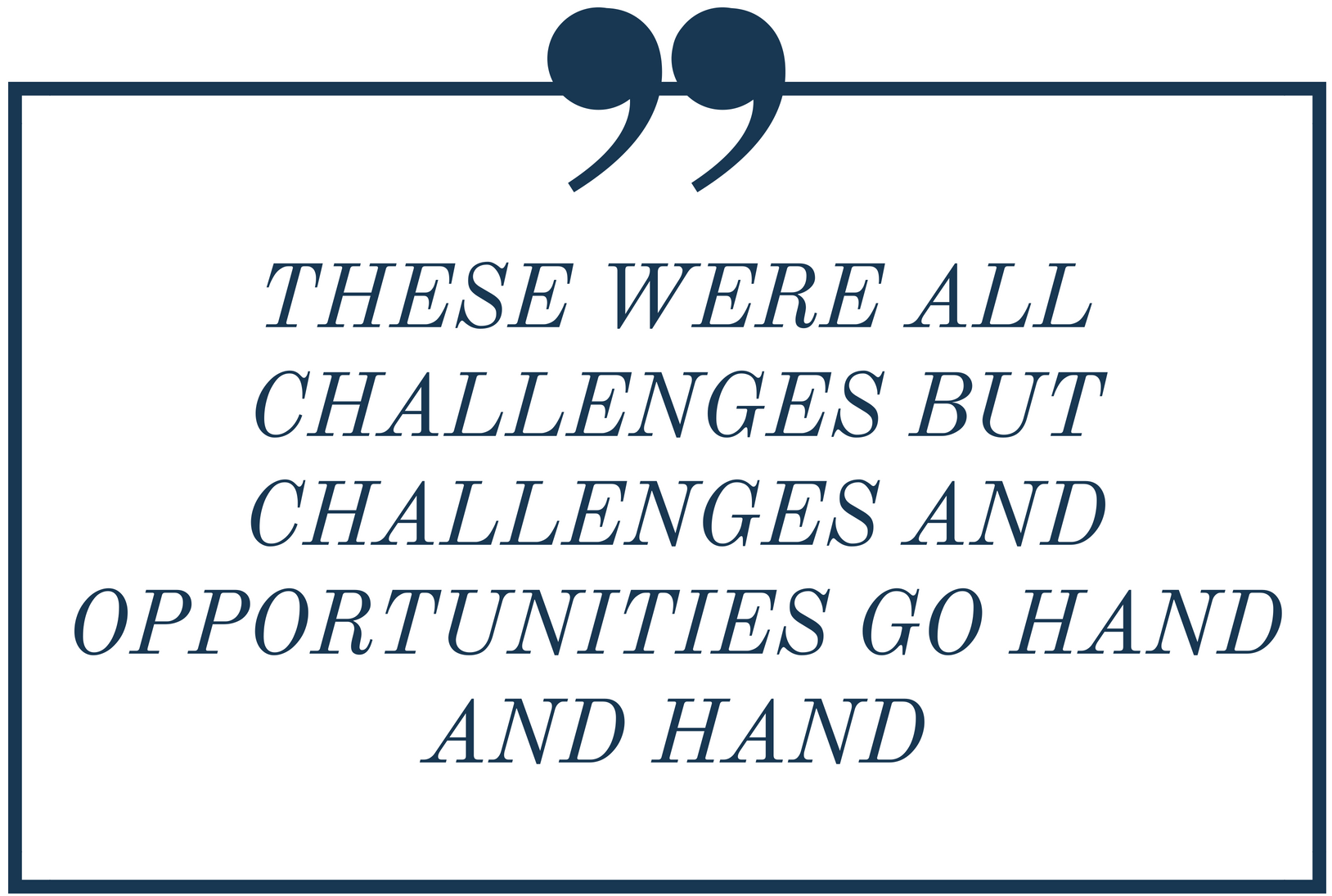 These were all challenges. But challenges and opportunities go hand and hand… And of course, fundraising has always been a challenge. It’s expensive to run a school of this quality. Tuition in private schools since the ‘50s has more or less doubled every ten years. It doesn’t take an advanced math degree to figure out that pretty soon, you’re going to get to a point where affordability becomes an issue. You can only raise tuition so much that fundraising becomes a key element of what we try and do. That’s the way that we’re able to provide the programs that we do, and the reason that we’re able to provide the facilities that we do. That’s been a challenge and will continue to be a challenge.
These were all challenges. But challenges and opportunities go hand and hand… And of course, fundraising has always been a challenge. It’s expensive to run a school of this quality. Tuition in private schools since the ‘50s has more or less doubled every ten years. It doesn’t take an advanced math degree to figure out that pretty soon, you’re going to get to a point where affordability becomes an issue. You can only raise tuition so much that fundraising becomes a key element of what we try and do. That’s the way that we’re able to provide the programs that we do, and the reason that we’re able to provide the facilities that we do. That’s been a challenge and will continue to be a challenge.
What skills/qualifications do you think the search committee should consider for your replacement?
I think my successor should be someone who, first and foremost, understands education, understands Jewish schools, will lead but also isn’t afraid to provide autonomy, will recognize the amazing staff that we have and develop them, and will be able to put the school on a firm financial footing. They should make sure that we’re continuing to draw in the right students and the right number of students, and, most of all, somebody who really believes in this community, because this is a really special place.
Would you ever consider rejoining the Milken faculty? Under what circumstances?
Oh, who knows. I don’t know what I’m having for breakfast tomorrow. I’m going to take a couple of months and sort of spend some time thinking and evaluating, and we’ll see what goes from there.
What can Milken improve on?
I think there’s a few things we need to do. We continue to need to develop our brand awareness. We will continue to connect our curriculum to the portrait of the graduate, we  will continue to invest in outstanding teaching and teachers, we will seek to establish a truly financially sustainable program – because the goal isn’t just to provide for our students now but to make sure we provide the kind of Jewish education we want to the Los Angeles community five years, 10 years, 20 years, 25 years down the line so that your children have the opportunity to attend an amazing school that fits their needs…we’re getting there. Financial sustainability is always a challenge. We have to figure out how to not only provide for the year, but also to look at the future because who knows what the economy is going to do. I want to make
will continue to invest in outstanding teaching and teachers, we will seek to establish a truly financially sustainable program – because the goal isn’t just to provide for our students now but to make sure we provide the kind of Jewish education we want to the Los Angeles community five years, 10 years, 20 years, 25 years down the line so that your children have the opportunity to attend an amazing school that fits their needs…we’re getting there. Financial sustainability is always a challenge. We have to figure out how to not only provide for the year, but also to look at the future because who knows what the economy is going to do. I want to make  sure – and whoever comes in is going to have this as a key focus: suppose the economy tanks next year. Do we have the sufficient reserves, sufficient endowments, and sufficient support to be able to do that? We are well on our way. We have amazing people working on this. But the truth is, we are [effectively] a five-year-old school, and it takes time to build that. We don’t have the luxury of drawing a $100 million endowment. But we’ve started to build it. And we’re starting to build reserves, and we’re starting to pay back the reserve deficits and that’s where we knew we were when we entered into the truly independent world and that’s where we’re going now. We’re taking all the right steps.
sure – and whoever comes in is going to have this as a key focus: suppose the economy tanks next year. Do we have the sufficient reserves, sufficient endowments, and sufficient support to be able to do that? We are well on our way. We have amazing people working on this. But the truth is, we are [effectively] a five-year-old school, and it takes time to build that. We don’t have the luxury of drawing a $100 million endowment. But we’ve started to build it. And we’re starting to build reserves, and we’re starting to pay back the reserve deficits and that’s where we knew we were when we entered into the truly independent world and that’s where we’re going now. We’re taking all the right steps.
After the typical exit interview questions, The Roar followed up with some additional questions for Weisserman.
Typically, major school administration changes happen on a different timeline. Why are we only learning of this transition in May?
It’s a busy year, clearly. There’s never a good time. I have found, 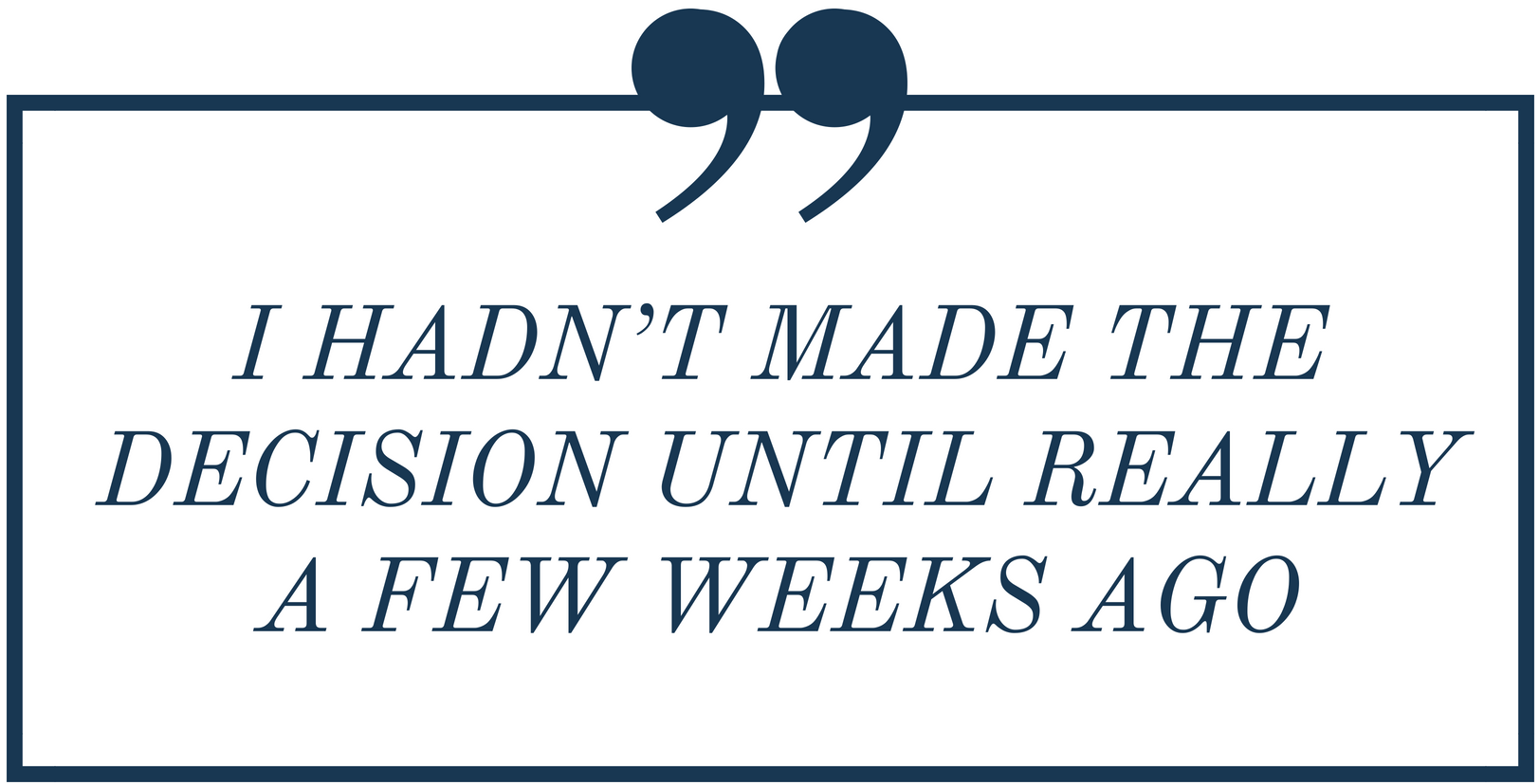 in the past, late in the school year is less disruptive. You don’t want to announce you’re leaving in admissions season and you don’t want to announce that you’re leaving before. And to be honest, I hadn’t made the decision until really a few weeks ago.
in the past, late in the school year is less disruptive. You don’t want to announce you’re leaving in admissions season and you don’t want to announce that you’re leaving before. And to be honest, I hadn’t made the decision until really a few weeks ago.
Milken prides itself on being a College Preparatory institution, and has students attending amazing schools. Yet, the most popular college nearly every year is Santa Monica College, a two-year community college. Is Milken still achieving its college prep goals?
We did a study of the last few years where we looked at the kids who have gone to SMC and why they’re going. Almost without exceptions, the kids who are going to SMC are not going because they didn’t have other options. They’re either going because they want to save two years’ tuition, and then they’re going to transfer to one of the UCs or one of the Cal [State]s. Or, they come from a family where staying local and brand name is a priority. And if they didn’t get into UCLA or USC, and that’s the only place their parents will let them go – even if they’ve gotten into these amazing schools – they’re looking and saying “I’m going to go for a year or two and then I’m going to transfer.” I have no problem with that…[In a recent study], 21 out of 22 of [the students who went to SMC] had transferred to USC or UCLA. They’re all graduating from top four-year colleges. But they’re saving $80,000 or $160,000 or they’re making a conscious decision that they’d rather go this path than go to an amazing school on the East Coast or the Pacific Northwest or in the South, because they want to stay local. Our goal isn’t to accumulate the best list of colleges. Our goal is to provide the best match and future for the kids. If you look at the list, there’s some pretty amazing schools on the list. I’ll put up our matriculation list against anybody. The fact that some of our students use SMC as a stepping point to a specific school, I have no problem with that. But let’s recognize what it is – it is not that the school is sending them to SMC because they don’t have other options, because every one of them has great options.
Some people have said that the letters from you and from Richard Sandler seemed to lack information or have ambiguities. Do you agree?
No, nothing ambiguous.
In what is likely your final interview with The Roar, is there anything else you would like to share with the community?
I love this place. I love the kids. I love what we’re doing. It’s an amazing place. I’m proud of what we’ve done, and I can’t wait to see what’s next.
As to what is next, to Weissman’s knowledge, a search committee has not yet been finalized. He says that Sandler and incoming Board Chair Lise Applebaum are “in the process of looking at that now.” He also added, “my understanding is that there will be an interim next year” and a new Head of School will come in the following school year. Though he explained he is not certain of these plans as they are decisions for the Board to make.



